Founder
3809
0
0
“India is at a critical crossroads vis-à-vis intellectual property (IP) as artificial intelligence (AI) and digital technologies reshape global businesses and transactions.” – Anant Prabhuchimulkar, Founding Attorney at Frigg & Snotra.
This interview was taken by SuperLawyer Team
Posted on April 03, 2025
This interview has been published by Anshi Mudgal and The SuperLawyer Team
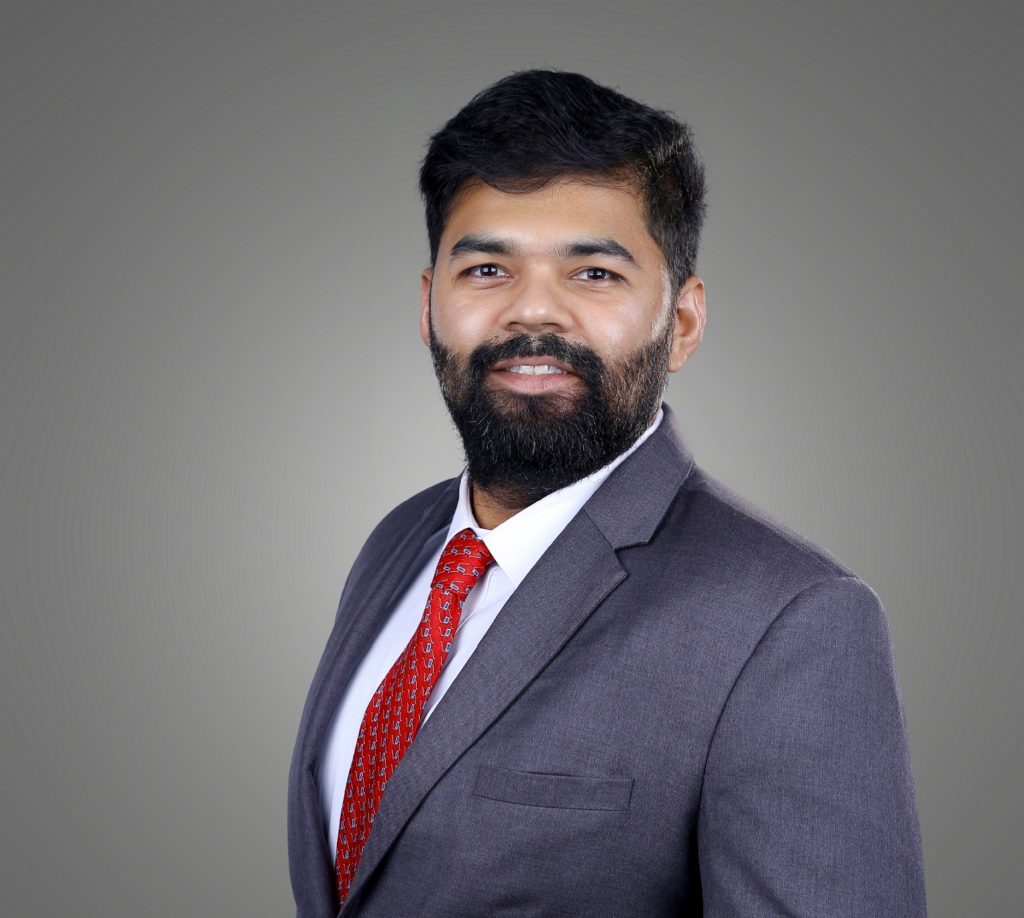
A legal career can hold different meanings for different people. What inspired you to pursue law as a career, and what was the driving force behind your decision to take this path? How did your journey through law school further ignite your passion for the field and shape your motivations for the future?
My journey to law began against the backdrop of family tradition pointing elsewhere. Three successive generations of civil engineers in my family (including both my parents), had established a legacy in public service and infrastructure – particularly, water supply, a cause to which both my father and grandfather had committed a large portion of their lives. While I was tempted to lean into this “flow” state, following them into a set career as an engineer working in infrastructure or environmental sciences, my interests as a student actually leaned towards aerospace engineering and all things space-related.
Frankly, it was my grandmother who ultimately inspired my legal path, and acted as a guiding light. It was in the late 1940s that she had graduated with a law degree from Government Law College, Mumbai (then-Bombay) having lost a few years to the Indian freedom movement. She continued to maintain kinships with notable alumni like Soli Sorabjee and Nani Palkhiwala whom she had met in study groups – on occasion she would narrate several anecdotes about them and their time at law college. Soon after graduating however, she chose family life over a demanding legal career – a decision she later expressed regret about before passing in 2024 at age 97. Despite never having practiced law as a member of the Bar, her legal training permeated her daily life. Her sharp wit, articulation and ability to debate confidently at length with eminent personalities and champions of industry left me with profound respect for the legal profession and even fostered a sense of reverence for litigating lawyers. There was something meaningful about pursuing a career she had not been able to follow.
Law school quickly dispelled my romantic and innocent notions about legal practice. No number of anecdotes or choice phrases could replace the intellectual rigour and stamina required for law school. Law school demanded a sharpened focus and genuine eagerness to learn, qualities that developed gradually during my studies. What transformed my experience were approachable professors, commercially relevant courses and real-world internships that revealed how legal strategy truly functions in practical application.
I became particularly interested in dissecting and analysing business structures and strategies in the form of case studies, similar to investigative journalism. I was taken in, almost jonesing on the access to information that legal training provided me – corporate filings, audit reports, public disclosures – told compelling stories that captivated me more than fiction. This fascination further accelerated me towards corporate law, built on the fundamental understanding of how legal frameworks shape industries and business strategy.
After completing your law degree, you chose to pursue a master’s from Durham University, United Kingdom. Given the number of esteemed institutions offering similar programs, what made Durham stand out as the ideal choice for you? Could you share how your experience there enriched both your academic and professional journey?
Choosing Durham University for graduate school was an easy decision. As one of the UK’s ancient universities alongside Oxford, Cambridge and St. Andrews – often collectively referred to as “Doxbridge” – Durham offered prestigious academic standing with its #4 UK ranking that year. This was a deciding factor as I was only looking for universities in the UK. Further, having missed application deadlines for Oxbridge, Durham represented excellence within my available options.
Another important consideration for me was the collegiate system at Durham that really attracted me – with each college maintaining its distinct history and culture. My acceptance to Castle College, Durham’s founding and oldest college was particularly transformative for me. The “Castleman” culture, shaped by centuries of tradition, encouraged by academic excellence and strong professional camaraderie was an unmatched value addition. Studying within a medieval castle – one that had served as a filming location for Harry Potter was an immersive experience in itself. Formal dinners in historical halls and galleries complete with ceremonial or academic gowns, connected learning to centuries of scholarly tradition.
Academically, Durham provided the perfect platform for refining and deepening my skills in commercial law. A key highlight was being taught Mergers & Acquisitions by Shaun Goodman, a Kirkland & Ellis’s London partner – easily one of the sharpest minds I had encountered. His nuanced perspective and practical insight into corporate acquisition strategy, execution modes and financing structures were invaluable. This blend of theoretical depth and real-world commercial application, prepared me for complex high stakes legal transactions that were around the corner for me in law firm life.
The Durham experience extended beyond coursework – instilling qualities that continue to shape my professional approach and work ethic: focus on analysis over verbosity or precedent, adaptability in unique situations, collegiality in professional relationships, and a broader sense of purpose and achievement in legal work. These elements remain foundational to my practice today.
In the early stages of your career, you had the privilege of working with several prestigious law firms, including Cyril Amarchand Mangaldas and Trilegal, as well as co-founding Digi-Smart Technologies. What were the pivotal learning moments during these formative years that not only deepened your understanding of the law but also set you on the path toward excellence in your profession?
My early years across law firms provided a crucible which forged my practice. At Trilegal, I was immediately thrust into representing a major multinational technology player interested in strategic acquisitions across the Indian tech sector as well as a USD 100 billion+ AUM private equity fund – both deploying approximately USD 8 billion in capital across Indian markets over a spread of deals in distinct sectors within aggressive timelines. This experience, building upon my foundational two years of private equity experience at Desai & Diwanji, revealed that excellence in complex high stakes transactions requires more than technical proficiency; it demands strategic vision that anticipates challenges before they materialize.
What proved invaluable to me was navigating these transactions with a lean, efficient, high performing team united by shared principles – rigorous work ethic (read: hard work), unwavering integrity and meticulous attention to detail. It became clear to me that the quality of collaboration often determines transaction success more definitively than individual brilliance. The diversity of perspectives and backgrounds among the exceptional professionals I worked with expanded my own professional toolkit exponentially, teaching me that legal solutions emerge not just from following set precedent but from creative problem solving. Our camaraderie naturally also seeped into our personal lives and I can’t underscore the importance of maintaining strong friendships while working in high stress settings.
At Cyril Amarchand Mangaldas, assisting on a private equity buyout of a major education provider across the preschool to K-12 segment while simultaneously handling my first listed acquisition – a control deal in the highly regulated cement sector revealed the multidimensional nature of complex transactions that intersect with governance, policy and public interest. Both these matters inter alia required synchronising national, state, local and international regulatory frameworks while identifying inconsistencies between them. Dissecting legal risks several financial quarters in advance and advising on mitigation strategies and pragmatic solutions and structures. This experience crystalised my understanding that superior deal counsel must operate as regulatory cartographers – mapping jurisdictional and legislative complexities while charting clear paths forward.
Having worked at prominent law firms, such as Cyril Amarchand Mangaldas and Trilegal, what motivated you to transition into an in-house role with Euronet Worldwide, Inc? How did you perceive the cultural shift between working at a law firm and being part of a corporate in-house team, and how did your responsibilities evolve in this new environment?
My transition to an in-house role at Euronet was driven by a fundamental desire to participate in business strategy and decision making from inception rather than merely documenting or assisting with decision already made. While law firm practice offered technical depth, I found myself increasingly drawn to the strategic questions that precede formal legal engagement. Having already done a masters’ degree, an MBA seemed excessive and unaffordable and I had often heard inhouse roles being equated to an MBA education.
The cultural shift from law firm to inhouse was stark and multidimensional. In private practice, client interactions typically begin after commercial parameters are already established – the classic “deal is agreed in principle between principals, now it’s the lawyers job to document it” scenario. At Euronet, I experienced the inverse, legal counsel became integral to opportunity identification, market entry strategy and risk assessment months or even years before external counsel may be engaged or a term sheet even considered. This shift from a reactive to proactive counsel demanded developing “commercial intuition” – the ability to anticipate business or revenue implications beyond legal analysis.
This perspective aligns with what a senior partner at a previous firm I worked at once described as the evolution from “legal technician to business strategist”. It took a lot of effort to create trust for counsel to be seen as business enablers rather than gatekeepers, but once this trust was established, the rewards to the company and stakeholders were self-generating.
During my time at Euronet, the Asia-Pacific business presented unique opportunities, requiring legal support for double-digit growth across diverse markets in South East Asia and the Middle East in addition to India. To meet these demand, I worked to innovate our legal function along with leadership by establishing what I saw as a “quasi law firm” within the corporation, treating stakeholders as clients and legal team as service providers. We deliberately recruited attorneys with top-tier law firm experience from AZB, CAM and SAM who could maintain technical excellence of legal practice while developing commercial acumen and who had the necessary temperament and soft skills required to work in a fast paced multi-cultural international environment.
While Euronet was a NASDAQ listed US corporation operating in over 100 countries operating for nearly 30 years, I found that negotiating with technology giants such as Google, Amazon, Apple and Microsoft that were significantly larger and well-resourced required a dual perspective that included understanding not just contractual terms, commercial motivations and regulatory landscape but also strategic negotiation and cultivating perseverance. Collaborating with state owned enterprises, government bodies, DISCOMs, utility providers, SMEs and startups conversely required a different brand of lawyering.
Perhaps most rewarding was leading compliance and product counsel functions under the guidance of senior leadership. This involved direct and close interaction and engagement with regulators, LEAs, industry bodies and policy forums. The work often required pioneering approaches for fintech products with no established regulatory blueprint and involved constantly navigating regulatory grey zones with an informed view.
Ultimately, the transition taught me that exceptional in-house counsel must balance technical expertise with commercial pragmatism while maintaining integrity at all times.
What inspired you to establish your own practice, and what vision did you have for Frigg & Snotra? Were there any significant hurdles or obstacles you faced during the establishment of your practice, and how did you overcome them to build it into what it is today?
The inception of Frigg & Snotra emerged from a vision to create something fundamentally different in India’s legal services offering – a boutique practice that integrates legal expertise with strategic business advisory. Having worked both in prestigious law firms and as in-house counsel, I observed a persistent gap between pure legal advice and practical business implementation, particularly in technology, financial services, media, and emerging sectors. Our mission became building that crucial bridge between legal and commercial.
The name “Frigg & Snotra” was chosen from Norse mythology, symbolizing wisdom, foresight, and prudence – qualities we believed essential for modern legal practice. This foundation reflected our commitment to delivering counsel that looks beyond immediate legal questions to anticipate future challenges and opportunities.
Though we are only six months into this journey, the early stages have been both challenging and illuminating. As fundamentally a first-generation lawyer establishing an independent practice, the challenges were immediately apparent. The regulatory framework governing the legal profession in India places significant and legacy hurdles on marketing unlike other mature legal markets such as the United States of America – Bar rules prohibit lawyers from advertising or marketing services in ways that other professionals take for granted. This restriction made traditional client acquisition strategies impossible, requiring creativity in building reputation and visibility through relationship development.
Financial uncertainty was perhaps the most daunting aspect in the early months. Unlike established firms with predictable revenue streams, we faced the constant challenge of irregular payment cycles, with some clients delaying payments by 60-90 days or more. There is also the running risk of clients utilizing work product – detailed legal opinions or transaction documents – or taking them to other lawyers for execution without paying for the intellectual input. This has necessitated implementing a system of setting up advance payments and developing clear engagement terms that protect our interests while remaining client-friendly.
Building a client funnel without traditional marketing channels has demanded persistence and ingenuity from day one. We are focusing on creating specialized knowledge capital in emerging domains like fintech regulation, digital businesses, and cross-border transactions. This expertise-first approach is slowly but gradually attracting clients facing complex challenges that commodity legal services can’t adequately address.
Perhaps most challenging in these initial months has been establishing credibility as a new entity. We’re addressing this by adopting an agile, client-centric approach that emphasizes responsiveness and personalized attention that larger firms can’t match. This is beginning to build the trust that I hope will transform one-off engagements into lasting relationships.
We’re still at the beginning of our journey, with much growth ahead, but by remaining adaptable to evolving client needs while maintaining unwavering ethical standards, we’re working to transform these early challenges into the distinctive characteristics that will define our firm and practice in years to come.
Given your extensive experience in advising on complex IP license transactions, how do you foresee the future of intellectual property evolving in India, especially in the context of global transactions, and in light of emerging trends in AI and digital technologies?
India is at a critical crossroads vis-à-vis intellectual property (IP) as artificial intelligence (AI) and digital technologies reshape global businesses and transactions. As an advisor to technology companies for over a decade, I see several key developments in the near to mid-term future. India’s traditional IP framework anchored principally by the Patents Act, 1970 and the Copyright Act, 1957 was not designed for the AI era, creating significant gaps in protection, ownership and liability. The question of who owns AI-generated content remains particularly contentious and we are yet to see lasting judicial clarity on the subject (while several matters have already reached Indian courtrooms they are at no level of conclusion).
The Indian Patent office currently maintains that purely AI-generated inventions lack patentability. Considering the explosive growth in the use of AI for instance in life sciences, this approach is particularly concerning for AI-based IP inter alia in areas such as diagnostics, disease identification, drug and clinical trials where big data from healthcare providers, medical workers, hospitals, researchers and patients can be used to develop innovation, leaps and bounds quicker than using non-AI methods. A stable IP protection framework in this sector also has to be balanced with public access considerations. There is a general awareness over the critical role algorithms play in a data centric world. However algorithms and software currently face patentability challenges in India unless they demonstrate practical application within specified devices.
Harmonised IP protection is essential for cross border transactions. Even for emerging tech startups, a strong patent portfolio is one of the first items that provides investor surety that the company or team is working on a unique subject matter or value proposition. India may need to create entirely new IP mechanisms specifically designed for IP innovation – this is in line with recommendations of the parliamentary standing committee on commerce.
India has already done significant work on incentivizing startups to formally protect their IP and be an active participant in the patent ecosystem by creating fee exemptions or subsidies as well as providing for expedited processing times for startups as India prepares for an unparalleled wealth creation era. Some work still remains in bridging the legislative or judicial uncertainty in IP on emerging technologies. For businesses navigating this shifting landscape, I recommend ensuring robust contractual protections and safeguards for proprietary information and trade secrets, while parallelly monitoring policy developments. Corporations irrespective of scale may also actively engage (as industry stakeholders) with policymakers and legal experts to problem solve sector specific issues and concerns, with the ultimate goal of optimizing the emerging IP framework and striking a balance between clarity, protection and innovation.
Over the course of your distinguished career, what is one key lesson or insight that has stayed with you, and how has it shaped your professional journey? What advice would you give to younger professionals aspiring to build a career like yours, and what resources would you recommend for them to stay ahead of the curve in today’s fast-evolving legal landscape?
The most effective lawyers are those who position themselves at the intersection of legal expertise and business or commercial strategy. Legal counsel viewed in isolation rarely delivers optimal value. The ability to contextualize legal advice within commercial or existential realities facing clients transform regular counsel to indispensable advisor.
To borrow from Mr. Cyril Shroff, “Modern practice requires to be multilingual – fluent not just in law but in the language of business, technology and risk management”.
Another valuable habit is cultivating client empathy – the ability to genuinely understand your client’s motivations, constraints and unspoken concerns. This is a dimension of legal practice that cannot be automated or outsourced to artificial intelligence and remains the foundations on which exceptional legal careers are built historically, and will continue to be in the future.
If I was a younger legal professional I would embrace the technological transformation that is quickly reshaping legal practice. Tools such as lexum.ai, jurisphere.ai etc are simply the beginning. In terms of resources, I recommend looking beyond legal sources and engaging with trusted publications such as HBR, Mckinsey Quarterly and The Economist. For personal knowledge development, there is a wealth of knowledge based podcasts, and most podcasting platforms have great algorithms that guide self-discovery and often lead to deeper and meatier discussions. I find Business Wars by Wondery a great podcast to follow. Separately, I often use Google Scholar to read academic papers in emerging domains rather than an article and typically find more nuanced takes on issues. I use Notion to track my own learning and development.
The legal profession is known for its demanding nature, often making it difficult to maintain a work-life balance. As someone who has achieved great success in your field, how do you manage the pressures and responsibilities of your career while also prioritizing your personal well-being?
Me opining on work-life balance is like the Hindenberg calling someone a “hot mess”. The profession’s reputation for demanding schedules is well earned particularly in transactional practice where client emergencies and deal timelines often dictate rhythms and sleep cycles. However, lawyers maintaining work life balance isn’t an oxymoron like “affordable housing in Mumbai”. It just requires strategies slightly more sophisticated than explaining to your partner why a client call at 4 AM constitutes “quality time”.
Early in my career, looking at my seniors, I embraced the conventional wisdom that success required superhuman dedication – that sleep was optional and black coffee was a superfood. My “work life balance” consisted of consolidating closing documents while at a colleague’s wedding, hoping that I could catch his next one without a deliverable. I once found myself lugging a laptop up a mountain, choosing to carry it to review an SSPA offline instead of a camera tripod that I desperately needed to capture a view that I had trekked several hours to photograph.
My evolution towards sanity has involved several realizations: First, I have established my personal constitutional rights – non-negotiable elements that even the most demanding clients or matters cant amend. Every persons non-negotiables are different. For some it is morning exercise routines that are non-negotiable, for others it is playtime with their children or partners. A great irony I’ve noticed is that the most creative solutions to complex problems have emerged not during midnight office sessions but while watching terrible reality television or some other mundane activity constituting a break. Taking breaks actually improves critical thinking to the ire of legal purists.
The legal profession’s reverence for precedent shouldn’t extend to destructive work habits. Just because generations of lawyers before us sacrificed personal well-being on the altar of professional advancement doesn’t mean successive generations must continue this dubious tradition. Like typewriters and smoke filled cabins, some precedents deserve to be overruled.
The verdict? Balance isn’t perfectly achievable, but sanity is possible with boundaries, perspective, and the occasional ability to laugh at our profession’s most absurd demands.
Get in touch with Anant Prabhuchimulkar –
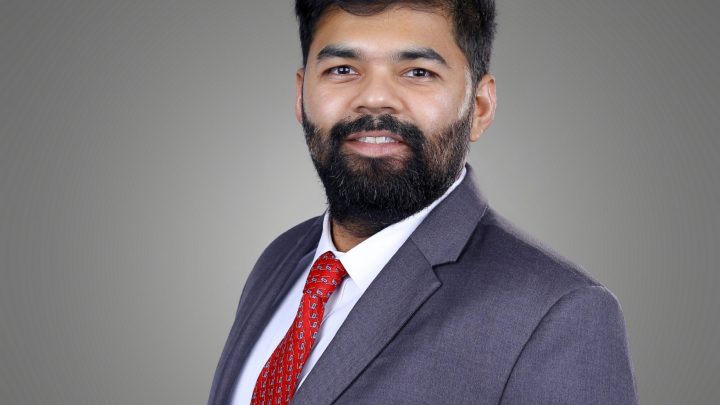
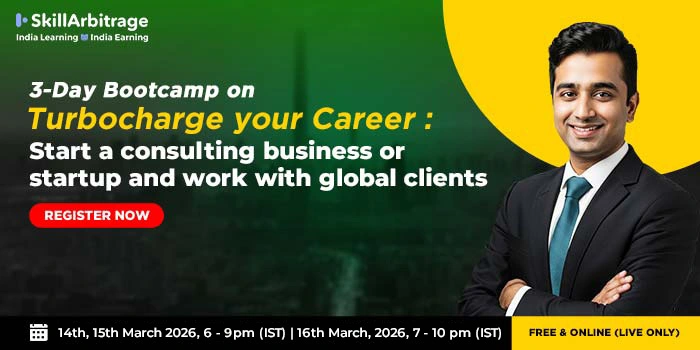
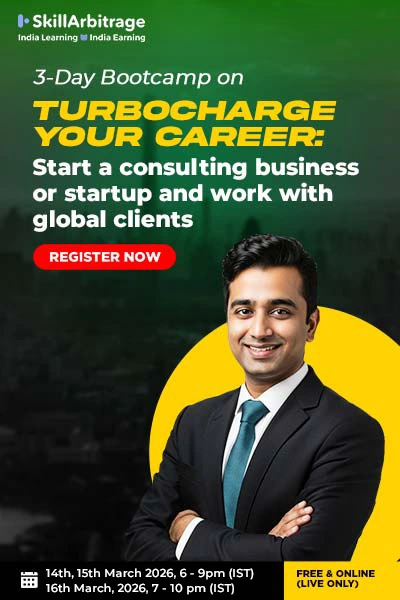

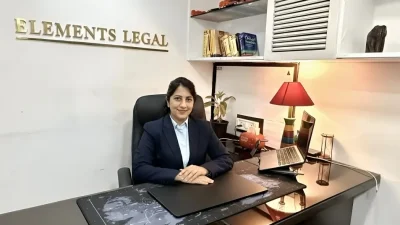


No comments yet
Be the first to share your thoughts about this interview.